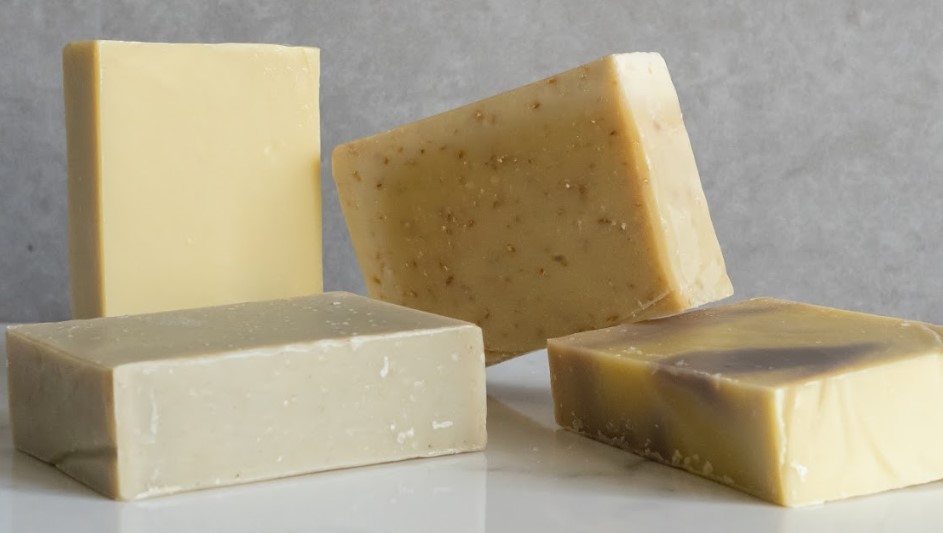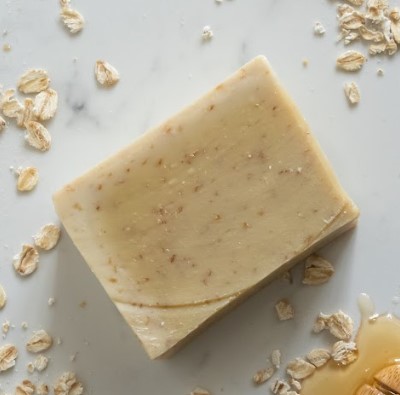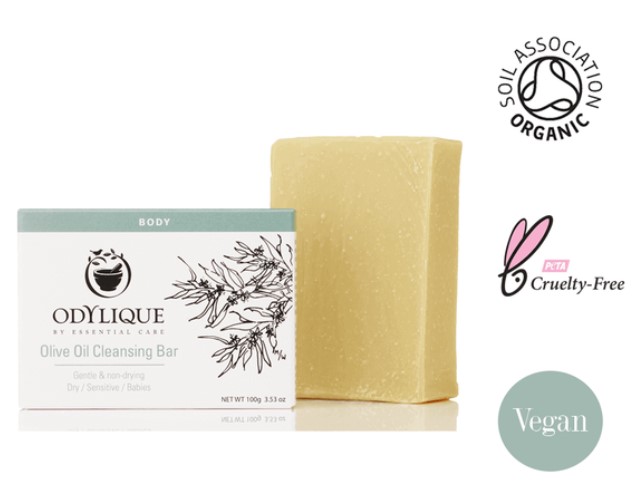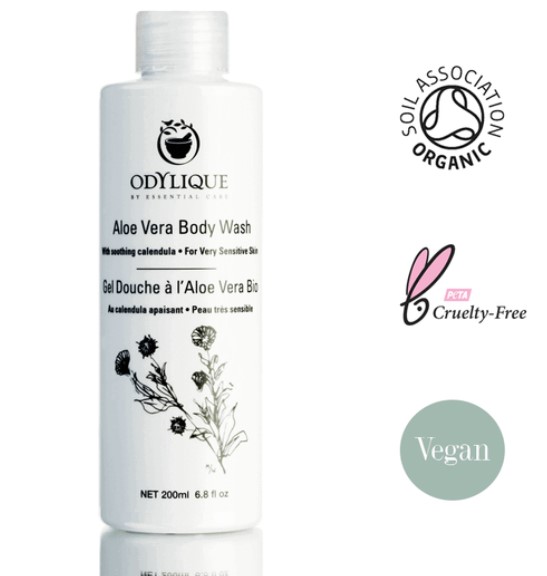If you suffer from Eczema, you already know that anything you put on your skin can cause flare ups. Wash products don’t stay long on the skin, but they can certainly take oils and nutrients out of it. This coupled with the fact that washing regularly can be a good way of managing eczema (bacteria, particularly Staphylococcus aureus, are one of the most important triggers of eczema), means that finding a good eczema soap, hand or body wash is key.
Our guide explains more about why you need a certain type of soap, hand wash or shower gel to protect your skin, which ingredients are good and which are best avoided.
Why You Need Eczema-Friendly Soap and Body Wash
When you have eczema, your skin works extra hard to remain hydrated. It dries out very easily, becoming itchy and sore.
You may develop flaky skin, or patches of thickening and roughness.
Because of this dryness, your skin struggles to tolerate exposure to anything that affects its balance. These things might include:
- Environmental aggressors, like cold weather, central heating or humidity
- Fabrics that aren’t natural or are scratchy
- Detergents like clothes wash that contain biological ingredients which leave a residue on the clothes
- Allergies
- Dust
- Hay fever
- Hormonal shifts like when your period is due
- Stress
- Soap and body care products
Any or all these things can be triggers, so it’s important to choose body care products that are extra gentle, nurturing, and don’t strip the skin.
Are Soaps and Shower Gels Bad for Eczema?
No, that’s a myth. Any skin care product can be good or bad, it all depends on the ingredients in the soap.
To find a soap that is ok for your skin, you need to consider the following:
Natural ingredients are key in eczema soap or wash
It’s rare that ‘syndets’ (the short version of ‘synthetic detergents’) or formulations that carry a lot of chemically altered ingredients, or petrochemical derivatives, work well for the skin.
Way back when, Margaret (Odylique's founder) discovered that those with reactive skins are happiest with formulations that use exclusively natural ingredients.
‘Creamy’ formulations usually provide moisture
Eczema prone skin is already dry. It needs moisture adding in. In fact, many people will almost bathe in emollients (moisturising creams) to add what’s been lost.
That’s not necessary most of the time, but your eczema soap and shower gel should offer moisturising ingredients (see below).
Foam is not necessarily your friend in an eczema bodywash
If your soap or shower gel is foaming a lot, the likelihood is it will be too harsh. The creamier formulations are just as effective at cleaning, but they won’t strip the natural oils your skin needs.
Cocamidopropyl betaine is often used in baby shampoo and shower gel to reduce tears – it’s not ideal for the skin, so avoid it.
Some sulphates are harsh and to be sure, it’s best to avoid them. There are plenty of good alternative surfactants for eczema body washes, like the glucoside family of detergents, amphoacetates or glutamates.
Little or no fragrance
There is nothing wrong with natural scents, most things have a ‘smell’ but many added fragrances or perfumes can cause irritation and dryness.
Synthetic fragrances (look out for ‘parfum’ on the label) are especially problematic, but for sensitised skin, even the purest essential oils can sometimes be too much.
A true targeted eczema wash should be free from any added scents or have a small amount of pure essential oils.
Avoid ‘Food’ ingredients that are also allergens
If you’re among the majority of eczema sufferers with a food allergy, like milk, eggs, wheat, or peanuts, you’ll also need to avoid this ingredient in skincare.
Look for pH 5.5
There have been arguments about this in the formulation community, but the majority agree, a balance of 5.5 is important in a liquid shower gel.
This is not the pH of your skin; it is the pH of your “acid mantle”.
The skin’s acid mantle comprises a layer of secretions from sweat glands, sebum, and the breakdown of fatty acids on the skin by good bacteria that live on our skin.
It helps keep the skin, scalp, and hair moisturized. At pH is 5.5, our good bacteria are happy and bad bacteria are repelled.
For most people, brief contact with an alkaline substance will not cause too many problems; our skin is a marvel at rebalancing itself. It takes about half an hour after a bath to get back to a healthy skin pH.
However, for those with eczema, it’s much harder. The protective mantle is already stressed, not moisturised enough and out of balance.
Ingredients to seek out in your eczema wash
Oats
If your soap or shower gel includes oats, particularly colloidal oats, it’s likely to be good for your skin. Oats are naturally anti-inflammatory and so soothing.
Olive oil
Olive oil, (extra virgin for maximum nutrients) works harmoniously with the acid mantle, locking in moisture and protecting the skin.
Glycerin
Plant-derived glycerine provides moisture to the skin. Odylique soaps are naturally rich in glycerine, making them exceptionally mild and moisturising.
Cocoa Bean or Shea Butter
Richly nourishing and creamy, shea butter and cocoa bean butter make excellent ingredients in eczema soaps and body washes
Aloe Vera
If you’re having an eczema outbreak, aloe vera can be one of the most comforting things you can apply to soothe your sore skin.
Using it via a bodywash is also worthwhile.
If you’re looking for a natural soap, suitable for eczema prone skin try ours here >
"“Your Organic Olive Soap is wonderful. I don't even have to put moisturiser on my hands after using it!” Kirsty, Odylique Customer
If you prefer a shower gel with nourishing, soothing ingredients that won’t inflame your skin, learn about ours >
"Struggled with eczema episodes since a child. Now a middle aged woman and my skin is reacting to hormonal changes. This product is literally a miracle." Gail, Odylique customer
For more practical tips on managing eczema, have a look at our home remedies for eczema guide, or to speak with our customer care team, please get in touch - 01638 491022 or customercare@odylique.co.uk.




